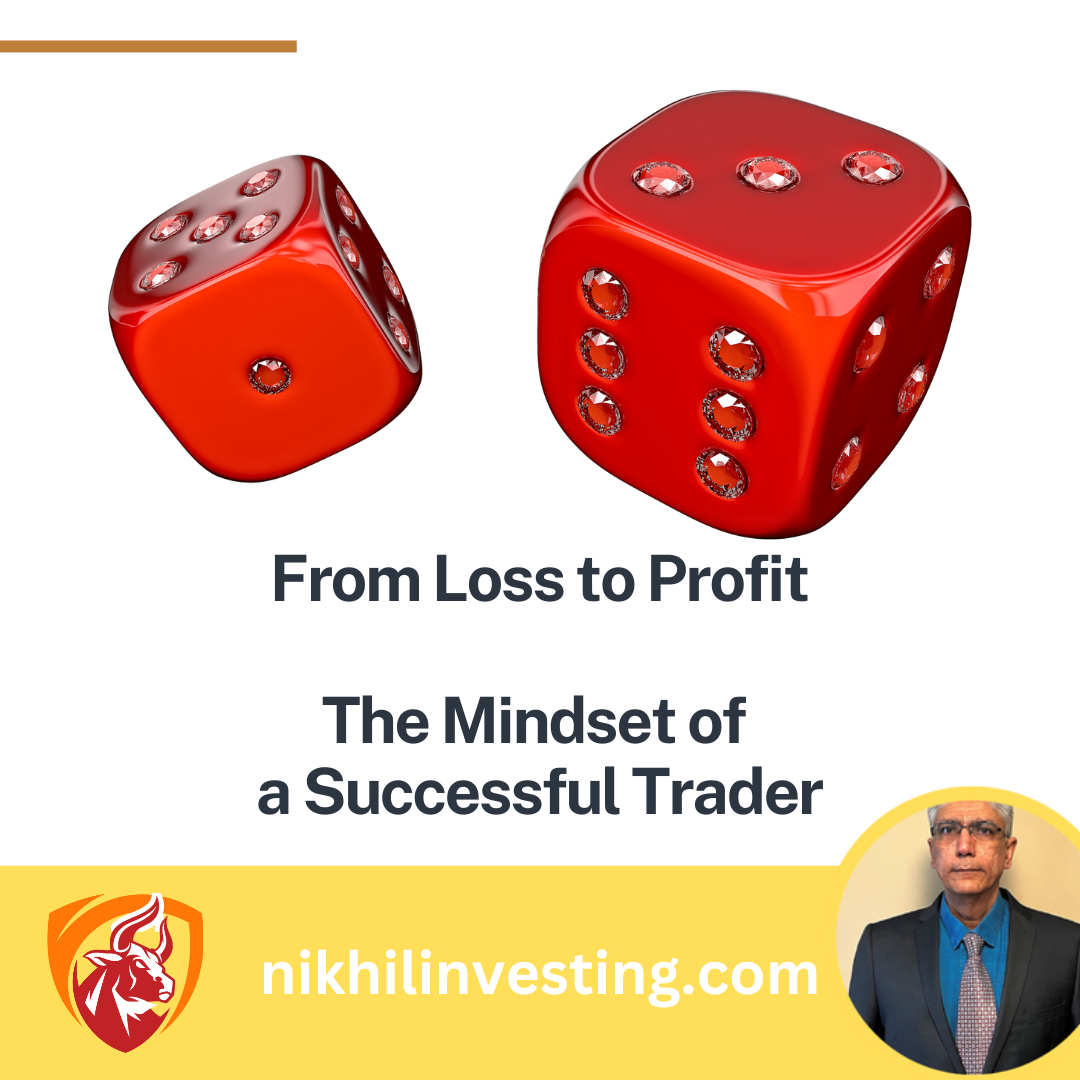From Loss to Profit The Mindset of a Successful Trader
Successful traders understand that losing is part of the journey and do not dwell on it.
Learn how successful traders handle losses and navigate uncertainty, along with insights into how fund managers respond to stocks moving in undesired directions.
Trading can be challenging, but successful traders have an important skill: they know how to handle losses. Rather than being upset about losing, they view it as a part of the learning process. Understanding this mindset is crucial for trading success.
When a trader takes a position and realizes it’s not going well, they don’t hesitate to exit with a small loss. This helps preserve their capital and gives them the opportunity to trade another day. They don’t cling to their initial ideas but instead remain flexible.
In a competitive society, losing is often seen as a personal failure, leading to a fear of losing and poor decision-making. However, successful traders manage their emotions and see losses as valuable learning experiences. They analyze their trades objectively, identifying any mistakes in their strategies or mindset. They understand that losses are a natural part of trading due to the uncertainty involved.
In a competitive society, losing is often seen as a personal failure
To succeed as a trader, it’s important to control emotions. Traders need to develop techniques to calm themselves down during tense moments. Techniques like diaphragmatic breathing help reduce the fight-or-flight response, allowing clearer thinking. Practicing mindfulness helps traders step back from their thoughts and beliefs, preventing them from being overwhelmed.
It’s essential to realize that our thoughts and beliefs don’t define us. They are products of our past experiences and upbringing. Traders need to detach from their thoughts and beliefs, giving themselves the freedom to reshape their minds and engage with uncertainty effectively.
Changing emotions and beliefs is possible. Traders can cultivate a disciplined mindset and embrace uncertainty. By mastering their reactions to losses, they can channel their energy toward growth and development.
Successful traders understand that wins and losses are determined by probability and do not define their worth.
Now, let’s take a look at how fund managers respond when stocks move in undesired directions:
Fund managers, who oversee investment portfolios, also encounter situations where stocks move in undesired directions. While it can be frustrating, successful fund managers stay calm and focused. They understand that not every investment will be a winner and that fluctuations in stock prices are normal.
When faced with such situations, fund managers evaluate the reasons behind the unexpected movement and reassess their investment strategies. They don’t panic or make impulsive decisions. Instead, they carefully analyze the market conditions and determine if the stock’s movement aligns with their initial assessment.
If the stock’s movement is not in line with their expectations, fund managers may choose to hold onto the stock and wait for a potential turnaround. Alternatively, they might decide to sell the stock and reallocate their investments to other opportunities that show more promising potential.
Ultimately, fund managers understand that they cannot control the market or guarantee positive outcomes. Instead, they focus on managing their portfolios effectively, diversifying their investments, and making informed decisions based on thorough analysis.
In conclusion, successful traders embrace losses as part of their learning process. They manage their emotions, adapt their strategies, and view losses as valuable experiences. Additionally, fund managers respond to unexpected stock movements by evaluating the situation and making informed decisions. Remember, trading success lies in staying focused, being adaptable, and making well-informed choices.




